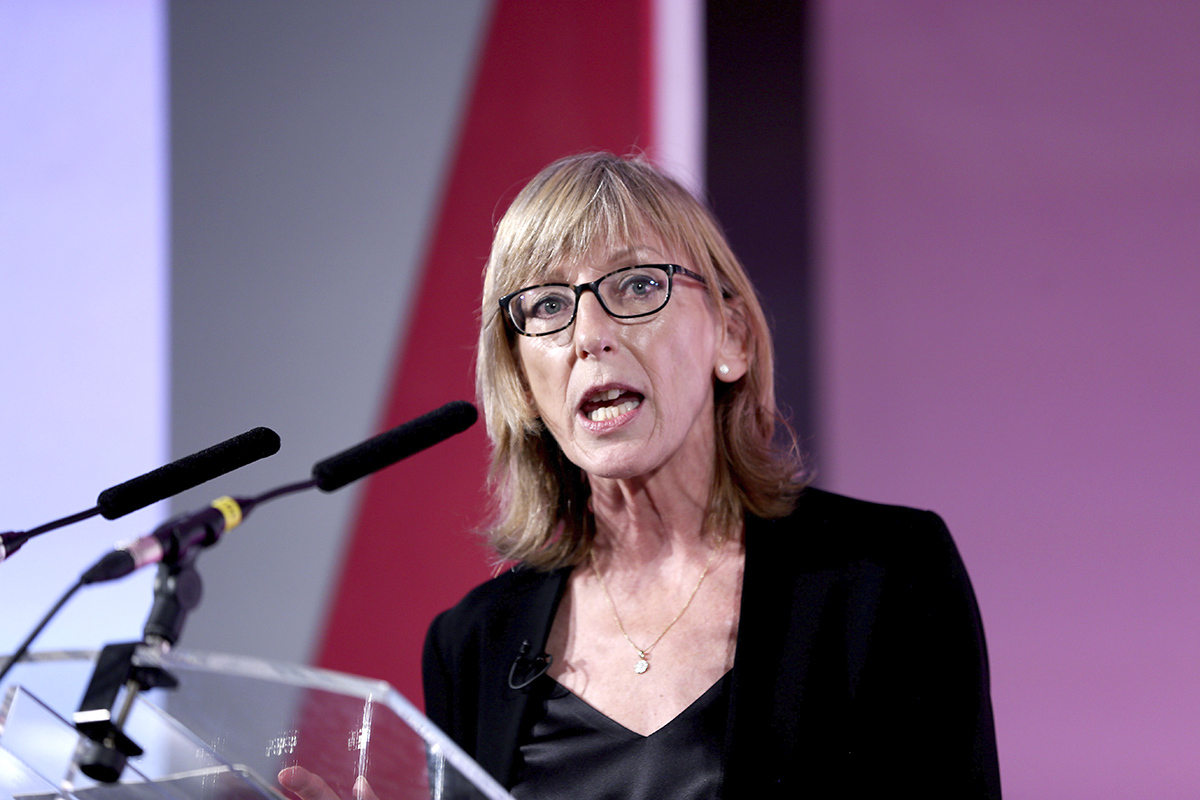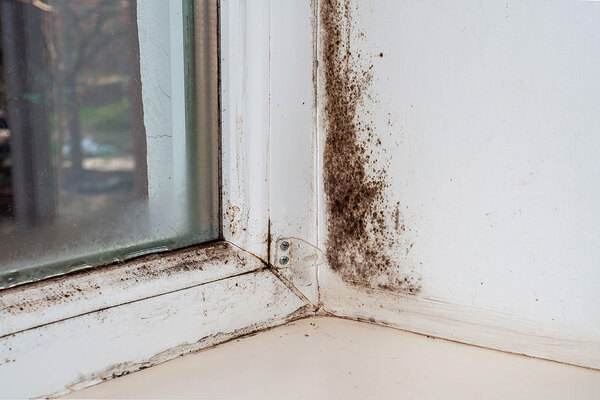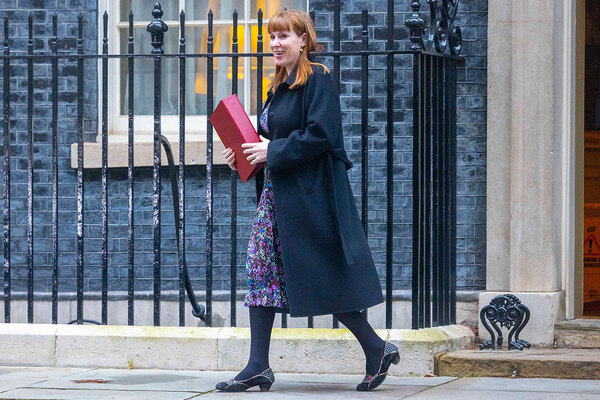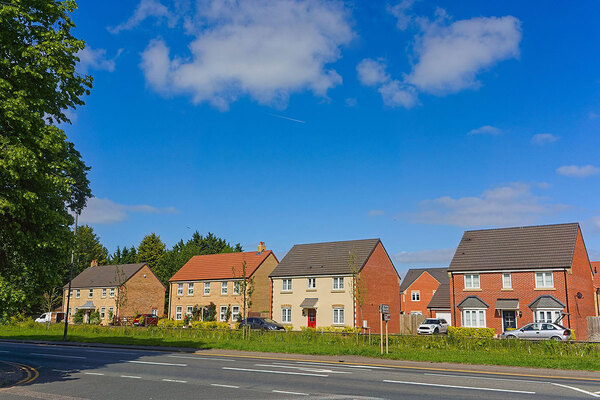Nineteen HAs handed V2s as wave of downgrades kicks off
Nineteen landlords – including some of the sector’s largest – have been downgraded to a V2 as the Regulator of Social Housing (RSH) kicked off a wave of action to reflect the economic climate and major challenges facing organisations.
As previously revealed by Social Housing, the RSH warned that the sector would be hit with a surge of financial viability downgrades as a result of landlords’ widespread financial challenges amid broader economic issues.
As many as 140 large registered providers, around two-thirds of the total, could have a V2 rating by the end of 2022.
Among those to be downgraded to V2 today are some of the sector’s biggest names, including Clarion, L&Q, Places for People and Sovereign (see below for full list and responses).
The RSH said higher inflation and borrowing costs, as well as a “weakening housing market”, were all factors in the downgrades.
The regulator said this is “putting greater pressure on providers’ financial headroom as they continue to invest in new homes and carry out safety, decarbonisation and repair works.”
The G15 has previously estimated that building safety work alone will cost its members £3.6bn by 2036.
A V2 means a landlord is compliant with the regulator’s standards, but must “manage material risks to ensure continued compliance”.
Eighteen of the landlords downgraded today retained a top rating for governance of G1.
Jonathan Walters, deputy chief executive at the RSH, said the sector “remains in a strong financial position overall”.
But he added: “It is crucial that all providers maintain a strategic approach to risk management and focus on their key objectives: investing in new and existing homes and providing quality services for their tenants”.
The stability checks, published today, are based on data submitted by landlords in June 2022.
However, the sector is potentially facing further pressure, with the government proposing to tighten the rent cap. A decision, following a consultation, is expected on Thursday during the government’s highly anticipated Autumn Statement.
Meanwhile, lawyers have predicted that the situation could lead to further mergers.
Gemma Bell, partner at law firm Devonshires, said: “We are already seeing unprecedented levels of RPs looking at joint ventures and mergers as a solution to enable them to continue to deliver their strategic objectives and we expect this to increase further as the economic picture worsens.”
Abri, Anchor, Curo, Manningham Housing Association, WHG and Worthing Homes all retained their G1/V1 statuses.
G15 landlord Hyde retained its G1/V2 status, and Wandle kept its G2/V2 status after stability checks.
Yesterday, the RSH announced that its chief executive Fiona MacGregor had decided to stay on at the agency after abandoning previously announced plans to step down.
Landlords’ responses to V2 downgrades
Calico Homes
Anthony Duerden, chief executive of Calico Homes, said: “Our sector faces a range of economic pressure with ongoing challenges around rising costs and inflation.
“We are pleased that we retain the highest rating for governance and that the regulator has assurance that Calico Homes has an adequately funded business plan. We believe Calico Homes continues to make the right decisions to invest in our homes while ensuring we are in a strong financial position overall.
“As a locally based housing provider, our focus continues to be on our customers, and we are responding to local need by investing in the quality of their homes, and to improve their energy efficiency for the future.”
Clarion
A Clarion spokesperson said: “The regulator’s judgement today reflects the national economic situation and the pressures on all housing associations. Our financial performance remains strong and Clarion Housing Group is well placed to meet these challenges.”
Connexus
Richard Woolley, chief executive at Connexus, said: “Although it’s disappointing to see our viability grading change, we understand the reasons and fully accept the decision. We will continue to work with the regulator to provide reassurance about our exposure to financial risks.
“Despite a gloomy financial forecast nationally, Connexus remains committed to investing in essential improvement work for existing homes and developing much-needed affordable housing across Shropshire and Herefordshire. Where it’s needed, we are working with our lenders to access additional funding in line with our business plans.
“Our governance arrangements remain strong, and we welcome the regulator’s decision to retain a G1 governance rating for Connexus.”
Greatwell Homes
A Greatwell spokesperson said: “The regulator has announced that following our stability check, our governance rating has remained at the highest level of G1. Our financial viability rating has been regraded from V1 to V2.
“The regrade is due to the current economic climate we’re operating in, paired with our increasing investment in our existing homes. We remain fully compliant with the regulator’s ratings. The regulator was clear that one of the reasons we retained the highest governance rating was because of our ability to manage our material risks.
“Our board is confident in our business plan as we continue to invest in our existing homes to shape places that people are proud of.”
Local Space
Josie Parsons, chief executive of Local Space, said: “Following a standard stability review by the Regulator of Social Housing, Local Space has been regraded from V1 to V2. The governance and financial viability rating remains at G1.
“The regulator has confirmed we comply with the Governance and Financial Viability Standard and our plans are consistent with, and support, our financial strategy and we will continue to meet our covenants.
“We are not alone in being regraded; it is an industry-wide situation affecting a large number of social housing providers. The sector is feeling the impact of the current economic climate and ongoing uncertainty with higher inflation and rising interest rates.
“The regrading is expected to be short term and we will be reviewed again in 2023, as part of the normal stability check process.”
L&Q
Waqar Ahmed, group finance director at L&Q, said: “Firstly, we are very pleased that the regulator has recognised the strength of our governance structures and processes by reaffirming our top-tier G1 rating.
“We strive for continual improvement in this area, and in recent months we have further strengthened our governance with the appointment of several new board directors, whose varied experience and expertise will be integral in delivering our ambitious corporate objectives over the coming years.
“Along with others in the sector, our viability rating has been downgraded from V1 to V2, and this judgement was not unexpected.
“With a medium-term shift to higher interest rates, cost pressures on supply chains and affordability pressures on sales, the whole sector is operating in a weaker economic environment. This has been recently noted by the regulator.
“V2 remains a compliant grade and the regulator recognises that we manage financial viability well, but it reflects L&Q’s decision to prioritise residents by diverting funds into homes, services and communities at a time when the sector is facing these unprecedented economic challenges.
“As previously stated, we have decided to substantially increase investment in residents’ homes. In the financial year ending March 31 2022, we more than doubled our major repairs spend to £71m, and total maintenance spend was £274m. Over the same period, we also invested £531m in new social housing.
“We are actively monitoring, managing and mitigating the wider challenges in our operating environment and are confident that our good governance and financial strength will enable us to continue delivering our corporate objectives. As the regulator notes in its judgement, we have an adequately funded business plan, with sufficient asset security and liquidity, and we are forecast to continue meeting our financial covenants.”
Longhurst Group
Rob Griffiths, deputy chief executive and chief financial officer at Longhurst, said: “The housing sector, like many others, is clearly facing a set of complex external circumstances. We’re pleased to retain our G1 status for governance while the V2 assessment is something we’d anticipated based on external economic factors and our ambitious development programme.
“It’s clear that our change in rating for financial viability is due to the exceptional economic climate we’re operating in, but we have strong treasury management arrangements in place to manage these risks.
“We’re confident that our robust financial processes and procedures, allied with strong governance, will help us successfully navigate these challenging times while retaining our commitment to provide the best possible homes and services to our customers.”
Selwood Housing
Barry Hughes, chief executive of Selwood Housing, said: “This change in our regulatory judgement reflects the exceptionally challenging economic circumstances facing housing associations and our customers.
“Despite this, we remain committed to providing local, affordable homes and playing our part in tackling the housing crisis.
“It is absolutely right that we are continuing to invest in our existing homes, as well as in our transformation programme which will bring substantial future benefits for our customers.”
South Lakes Housing
Cath Purdy, chief executive of South Lakes Housing, said: “We acknowledge the regulator’s assessment of South Lakes Housing as G1/V2.
“We are proud to be investing significantly in the quality and energy efficiency of our homes and view the regulator’s judgement as a fair reflection of our ambitious plans.
“We aim to continue to invest in energy efficiency measures at this critical time for customers facing increasing energy bills. The board and executive team will continue to closely manage the risks associated with the delivery of our plans, particularly in the current volatile economic environment, and will ensure that customer outcomes, safety and compliance remain a priority.”
Sovereign
Mark Washer, chief executive of Sovereign, said: “Clearly the economic environment is affecting the entire housing sector. Any organisation with ambitious plans to improve business efficiencies and increase development of new housing must take into account the economic context.
“Higher inflation, higher interest rates, labour shortages and the prospect of a recession are the reality we must contend with.
“No CEO wants to see their financial viability downgraded, but the fact that the regulator has today downgraded 19 housing associations, including some of the biggest in the sector, shows that this is not about us in particular but about our sector in general.
“Sovereign will continue to invest in our existing homes and will manage our development programme to ensure we maintain sound finances.”
He added: “While we must not downplay the very serious headwinds we face, we remain compliant and viable as a business. I am confident that our strong financial foundations and our business transformation programme mean we will be able to ride out this storm.
“Our primary focus must continue to be ensuring we deliver for our customers, who are as exposed as we all are to the short-term and medium-term prospects for the economy. We will continue to do all we can to support our customers and our employees through this cost of living crisis.”
Together Housing
Kevin Ruth, chief executive of Together Housing, said: “We are delighted to maintain our G1 rating for governance which confirms that Together Housing continues the highest governance standards.
“The regulator’s decision to move our viability rating to V2 reflects wider changes in the social housing sector. The judgement confirmed that Together Housing has an adequately funded business plan with sufficient security in place.”
The Wrekin Housing Group
Wayne Gethings, group chief executive at The Wrekin Housing Group, said: “Following the regulator’s completion of our stability check in June 2022, based on what was a unmitigated business plan with all information provided without the context of the current economic turmoil, it is hard to see how anyone would appear resilient if analysing a unmitigated plan against a new set of economic pressures that the whole sector is experiencing.
"Maybe a better solution would have been for the regulator to have asked for updated information and plans with mitigations included before drawing a regulatory conclusion, as was done when rent restructuring was introduced in 2015.
"For Wrekin, over the last four months, since submission of our financial forecast return to the regulator much has changed. Our credit rating was affirmed by Standards & Poor as unchanged, A Stable, and we have reported another years positive trading as reported in our annual accounts.
"During the summer we began to assess the implications of increased inflation, higher interest rates and likely changes to rent setting, while preparing our budget and business plan for 2023/24.
"However after the news, reported in Social Housing, announcing that two thirds of those regulated will be graded V2 due to the economic environment in which we are currently operating in, it is clear that G1/V2 will become the new normal for the regulated social housing sector.
"Following meetings with our regulatory leads it is hard to argue that the economic world and uncertainties around the sector does mean we are implementing the stress test mitigations contained in our plans and we will need to consider the next set of stress tests and mitigations to deal with uncertain economic times going forward, something we are already working on with our board and will be included in our 2023/24 budgets and business plan.
"The Wrekin Housing Group, like the rest of the sector, faces an uncertain and challenging economic environment. We are taking steps now to address these challenges, maintain our key services for our tenants and the quality of homes we provide. While also ensuring that our organisation continues to be financially strong and resilient so that we can seize the opportunities that will arise as we emerge from this period to the advantage of our customers, communities and partners as we continue to make a difference to people’s lives.”
Cross Keys Homes, Gateway, Home Group, Places for People, Saffron Housing Trust, Saxon Weald, and Settle Group have been contacted for comment.
Wandle retained its G2/V2 status after an in-depth assessment.
Dr Valerie Vaughan-Dick, chair of Wandle, said: “The presenting issues of 2018 have been resolved and the new regulatory judgement has been formed from a much-improved organisation with clear plans to improve further.
“The board is pleased that the RSH has recognised the significant improvements we have made in creating financial resilience, managing risk, and our revised asset management plan.”
RELATED







